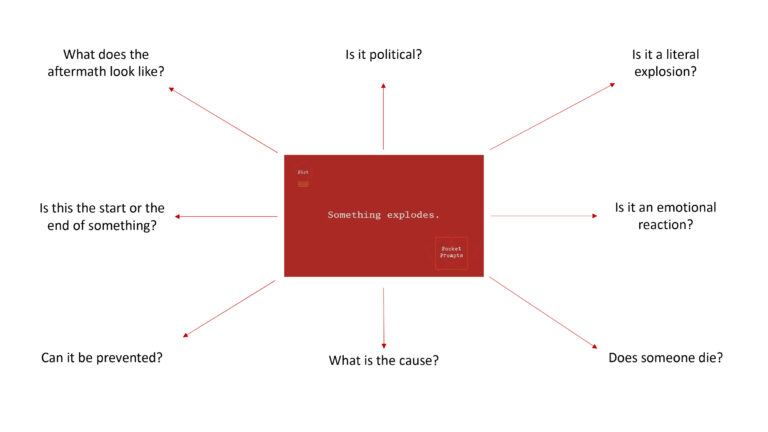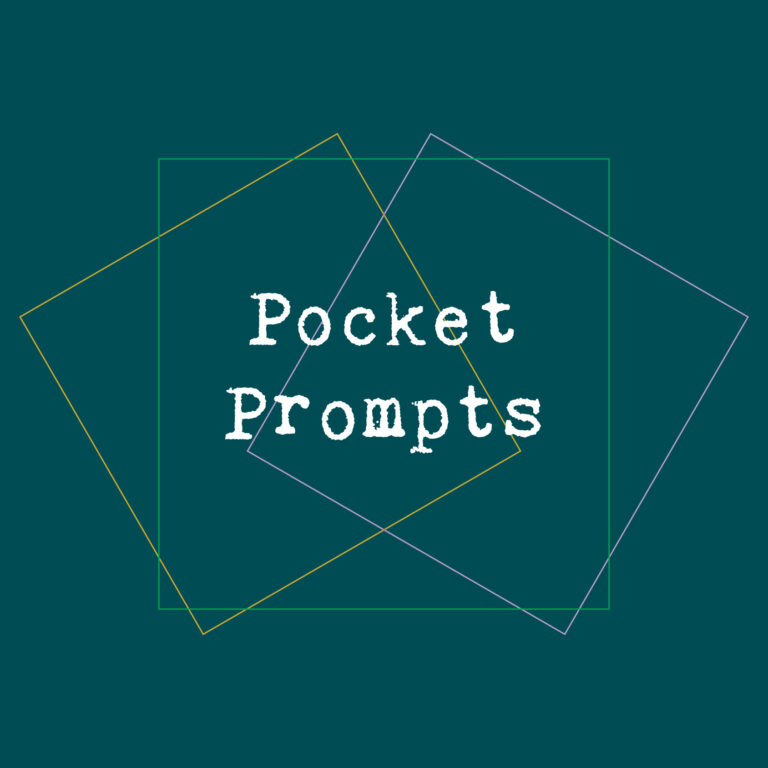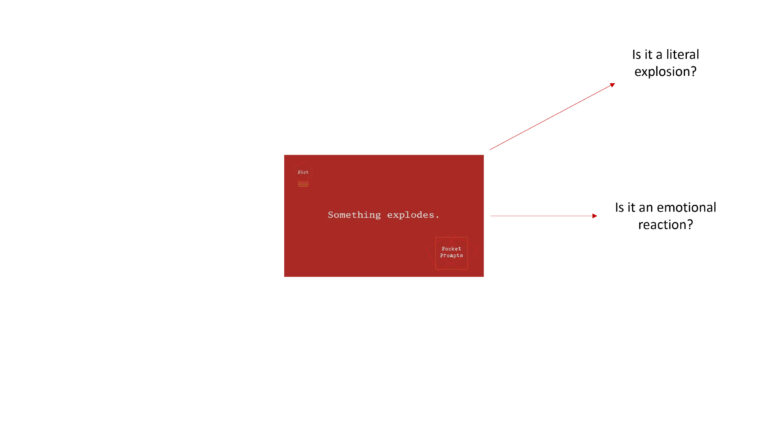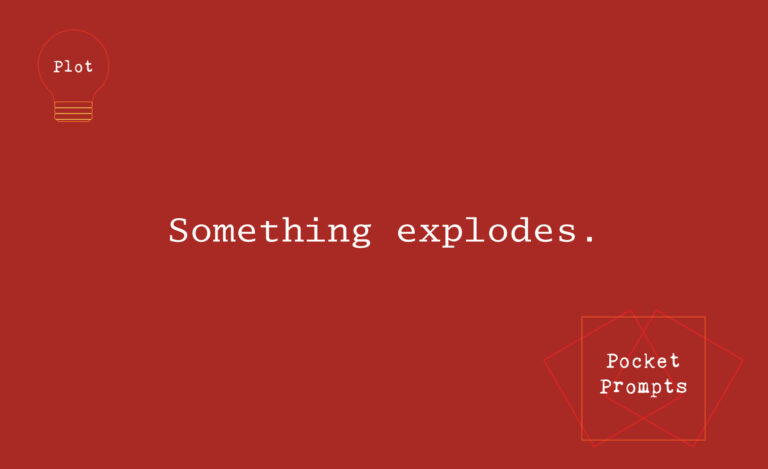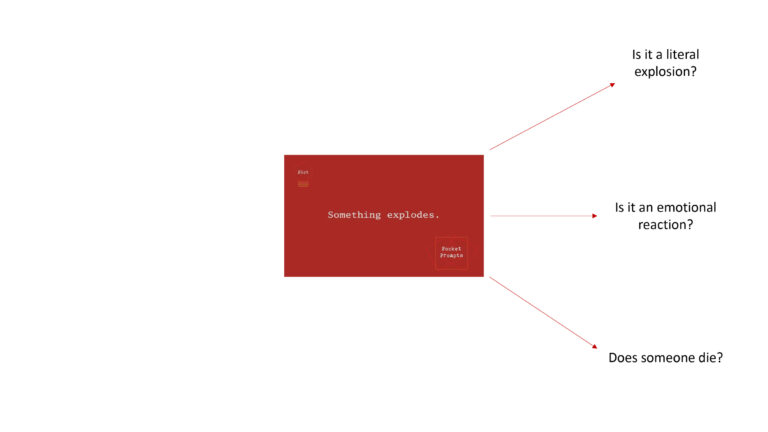Pocket Prompt Expansion: Something Explodes #8 – Endings and Beginnings
So far, while looking at the ‘Something explodes’ card, we’ve looked at types of explosions and Cause & Effect. For the final post in this series, before we move onto other cards and other ways of utilising them, we’re going to look the explosion’s position in the narrative. We’ll start with one key question: Is…
